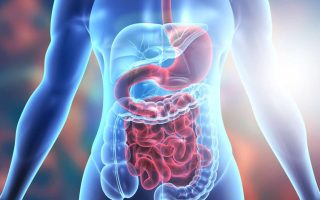lettersforvivian.org – In an era where sedentary lifestyles are becoming increasingly common, understanding the profound impact of exercise on our overall wellness is more important than ever. Exercise is not just about losing weight or building muscle; it’s a fundamental activity that stimulates the body’s systems, leading to a cascade of positive effects on physical, mental, and emotional health. This article delves into how the body responds to movement, highlighting the multifaceted benefits of exercise and its role in promoting a well-rounded wellness experience.
The Physiological Response to Exercise
When we engage in physical activity, our bodies undergo a series of physiological changes designed to meet the demands of the exercise. The cardiovascular system responds by increasing heart rate and blood flow, delivering more oxygen and nutrients to the muscles and removing waste products more efficiently. This response not only improves the efficiency of the heart and lungs but also strengthens the circulatory system, reducing the risk of cardiovascular diseases.
Muscles, too, adapt to the stress of exercise by becoming stronger and more efficient. Regular physical activity leads to increased muscle mass and improved muscle tone, enhancing the body’s metabolic rate and contributing to better weight management. Moreover, exercise stimulates the production of endorphins, the body’s natural painkillers and mood elevators, which can reduce feelings of pain and contribute to a sense of well-being.
The Psychological Benefits of Movement
Beyond the physical changes, exercise has a profound impact on mental health. It is widely recognized for its ability to reduce symptoms of depression and anxiety. The release of endorphins during exercise plays a significant role in this, as does the distraction from daily stressors that physical activity provides. Furthermore, the sense of accomplishment and improved self-esteem that comes with meeting exercise goals can have a lasting positive effect on mental health.
Exercise also enhances cognitive function, improving memory, attention, and problem-solving skills. This is partly due to the increased blood flow to the brain during physical activity, which promotes the growth of new brain cells and the development of new neural connections.
The Role of Exercise in Disease Prevention and Management
Regular exercise is a powerful tool in the prevention and management of a wide range of diseases. It is particularly effective in reducing the risk of chronic conditions such as type 2 diabetes, certain types of cancer, and osteoporosis. For those already living with these conditions, exercise can help manage symptoms and improve quality of life.
Exercise also plays a crucial role in maintaining a healthy weight, which is a key factor in preventing many diseases. By increasing energy expenditure and building muscle mass, physical activity helps create a calorie deficit, leading to weight loss and improved body composition.
Conclusion
The body’s response to movement is a testament to the profound benefits of exercise on our physical, mental, and emotional health. From strengthening the heart and muscles to enhancing cognitive function and mood, the positive effects of exercise are far-reaching. As we navigate the challenges of modern life, incorporating regular physical activity into our routines is not just a choice but a necessity for achieving and maintaining optimal wellness. Whether it’s through structured exercise programs, daily walks, or engaging in sports, finding joy in movement is a step toward a healthier, happier life.


